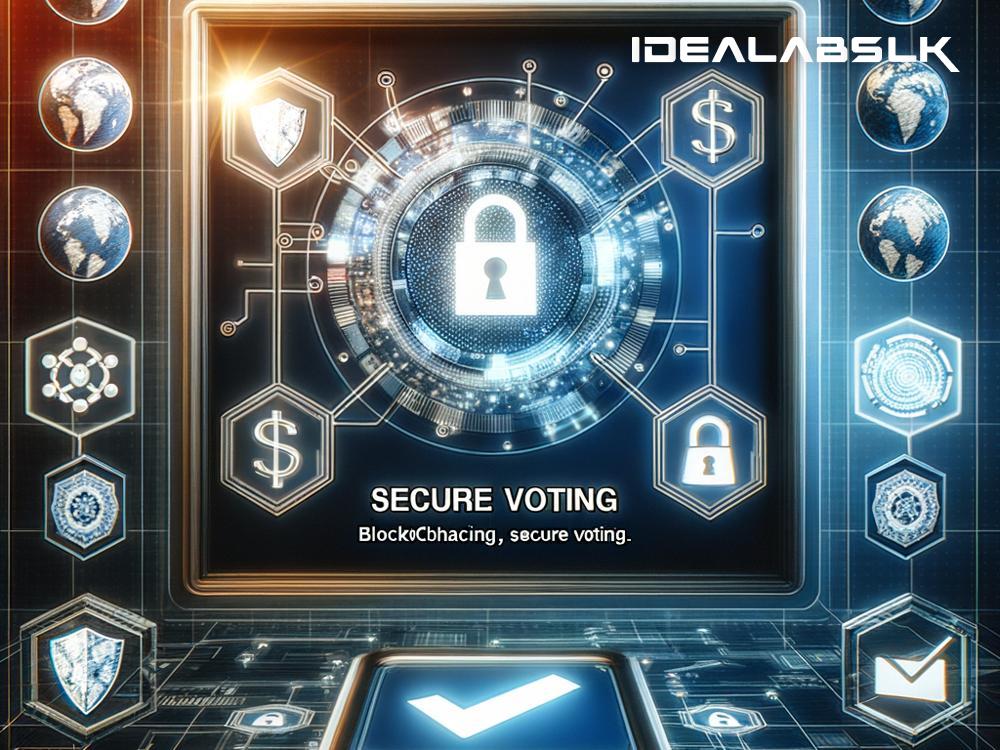How Blockchain Will Shape Future Voting Mechanisms
In today's fast-evolving world, the way we do things is continuously changing, thanks to technology. One area that's ripe for innovation is the way we vote. Voting is the cornerstone of democracy, enabling citizens to choose their leaders and influence important decisions. However, traditional voting systems have their drawbacks, including fraud, inaccessibility, and inefficiency. Enter blockchain technology, a groundbreaking solution that could revolutionize the future of voting, making it more secure, accessible, and efficient. Let's delve into how blockchain could shape future voting mechanisms.
What is Blockchain?
To understand how blockchain can transform voting, it's crucial to grasp what blockchain is. Simply put, blockchain is a type of database. However, instead of storing data in one central location, blockchain distributes it across a network of computers. This makes the data highly secure and nearly impossible to tamper with, as each piece of data, or "block," is linked to the previous one, forming a secure “chain.”
Enhanced Security
One of the most significant benefits of using blockchain for voting is the increased security it offers. Traditional voting systems are vulnerable to various types of fraud, including tampering with ballot boxes or manipulating votes during counting. Blockchain's secure nature could virtually eliminate these risks. Since each vote is recorded as a block and secured using cryptography, altering any vote would require changing all subsequent blocks, which is practically impossible without being detected.
Improved Accessibility
Another exciting potential of blockchain is its ability to make voting more accessible to everyone. Currently, voting often requires going to a specific location on a specific day, presenting challenges for those living in remote areas, with disabilities, or with scheduling conflicts. With blockchain-based voting, individuals could cast their votes securely from the comfort of their homes using a smartphone or computer. This could significantly increase voter turnout, ensuring everyone’s voice is heard.
Greater Efficiency
Election results can sometimes take days or even weeks to finalize, primarily due to the time-consuming process of counting votes. Blockchain could streamline this process, making it much faster and more efficient. Since votes are recorded instantly on the blockchain, tallying results could be nearly instantaneous once voting closes. This would not only accelerate the electoral process but also reduce the costs associated with traditional voting methods, such as printing ballots and staffing polling stations.
Transparency and Trust
Trust in the electoral process is crucial for democracy to function effectively. Blockchain technology offers an unparalleled level of transparency, as all transactions (or, in this case, votes) are recorded on a public ledger. This would allow for real-time verification of votes without compromising voters' anonymity, building confidence in the integrity of the election process.
Challenges Ahead
While blockchain holds immense potential for transforming voting, there are still hurdles to overcome. First and foremost is the digital divide; not everyone has access to the necessary technology to participate in digital voting. Education and investment in infrastructure are crucial to ensure inclusivity. Additionally, ensuring the security of the voting system against cyberattacks and safeguarding voter privacy are challenges that must be addressed as technology advances.
The Path Forward
Despite these challenges, the journey towards blockchain-based voting systems is already underway. Various countries and organizations are experimenting with blockchain voting on a small scale, learning valuable lessons and improving technology. As we continue to refine blockchain and increase its accessibility, the dream of a secure, efficient, and fully inclusive global voting system could become a reality.
Conclusion
In conclusion, blockchain technology has the potential to fundamentally change the way we vote, offering solutions to many of the problems associated with traditional voting systems. From enhancing security to improving accessibility and efficiency, the benefits of blockchain could significantly shape the future of voting, making it more inclusive, transparent, and trustworthy. As we navigate the challenges and explore the possibilities, the path towards a blockchain-powered future of voting looks promising, heralding a new era for democracy around the world.

